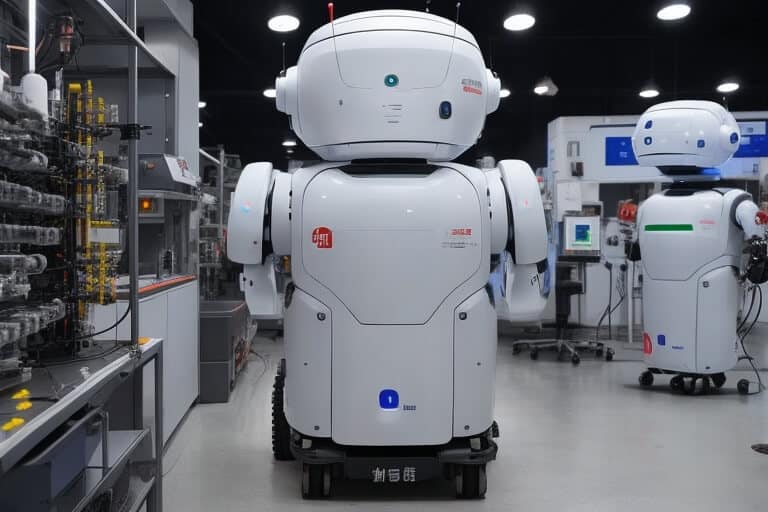Baidu Unleashes Its ERNIE Bot Generative AI to the Public

- September 4, 2023
- allix
- AI Projects
The Chinese tech titan, Baidu, has recently declared the public availability of its groundbreaking generative AI creation, ERNIE Bot, accessible through a range of application stores and its official website.
ERNIE Bot showcases the capacity to produce text, images, and videos based on natural language inputs, fueled by the prowess of ERNIE (Enhanced Representation through Knowledge Integration), a potent deep learning model.
The maiden version of ERNIE was initially unveiled and released as open-source in 2019 by Tsinghua University’s researchers, demonstrating the model’s proficiency in comprehending natural language by merging textual and knowledge graph data.
Subsequently, in the same year, Baidu introduced ERNIE 2.0, marking a historic milestone by achieving a GLUE benchmark score surpassing 90, thereby setting a new standard for assessing natural language comprehension systems.
Fast forward to 2021, Baidu’s researchers unveiled ERNIE 3.0 in a pioneering paper, asserting that the model outperforms human capabilities in the SuperGLUE natural language benchmark. ERNIE 3.0 raised the bar in SuperGLUE scores, overshadowing the efforts of industry giants like Google and Microsoft.
Robin Li, Baidu’s CEO, believes that opening ERNIE Bot to the public will facilitate invaluable human feedback, leading to an enhanced user experience. He underlines ERNIE Bot’s proficiency in the four core facets of generative AI: understanding, generation, reasoning, and memory. He emphasizes its utility across diverse tasks, such as writing, learning, entertainment, and professional applications.
Baidu initially introduced ERNIE Bot in March of this year, showcasing its versatile capabilities across various domains, including literature, art, and science. For instance, it can summarize a science fiction novel and provide creative suggestions for extending the storyline. Additionally, ERNIE Bot excels at generating images and videos from textual inputs, crafting fictional character portraits or movie scenes with ease.
In recent developments, Baidu disclosed that ERNIE Bot has tripled its training throughput since March and achieved significant milestones in data analysis and visualization. The AI can now generate results more swiftly and process image inputs efficiently. For example, it can analyze a pie chart image and generate a natural language summary of the data.
Bloomberg reports that Baidu is among the pioneering Chinese firms to gain regulatory approval for deploying generative AI experiences to the public. Authorities regard AI as both a business and political imperative in China and seek to ensure its responsible and ethical use.
Beijing has implemented a robust set of regulations, surpassing international norms, to govern generative AI within China. These rules encompass various aspects, including content, data, technology, fairness, and licensing.
An essential requirement is that operators of generative AI services must align with socialism’s core values, refraining from promoting content that undermines state power, secession, terrorism, or national unity and social stability.
Generative AI services are also prohibited from propagating content that incites ethnic hatred, discrimination, violence, obscenity, or false and harmful information.
The regulations underscore China’s dedication to developing digital public assets for generative AI. They emphasize the promotion of public training data resources and collaborative sharing of model-making hardware to enhance utilization. The authorities aim to encourage the orderly opening of public data classifications and the expansion of high-quality public training data resources.
Regarding technology development, the rules mandate the use of secure and proven tools, including chips, software, tools, computing power, and data resources in AI development.
Respect for intellectual property rights is a focal point, requiring consent before incorporating personal data into model development. The regulations prioritize improving the quality, authenticity, accuracy, objectivity, and diversity of training data.
To ensure fairness and non-discrimination, developers must create algorithms that avoid bias based on ethnicity, beliefs, nationality, region, gender, age, occupation, or health. Additionally, most generative AI service operators must obtain licenses, introducing a layer of regulatory oversight.
China’s regulations not only impact domestic AI operators but also set a benchmark for international discussions on AI governance and ethical practices.
Categories
- AI Education (39)
- AI in Business (65)
- AI Projects (87)
- Research (107)
- Uncategorized (5)
Other posts
- Medical Treatment in Brazil: Advanced Healthcare, Skilled Specialists, and Patient-Focused Care
- Dental Treatment in China: Modern Technology, Skilled Dentists, and Comprehensive Care for International Patients
- Plastic Surgery in China: Advanced Aesthetic Medicine Supported by Precision, Innovation, and Skilled Specialists
- Ophthalmology in China: Advanced Eye Care Guided by Innovation, Expertise, and Patient-Focused Treatment
- Finding Care, Calm, and Confidence: Why Patients Are Looking Toward Beroun in the Czech Republic
- Choosing Health, Energy, and a New Future: Exploring Gastric Bypass in Diyarbakır, Turkey
- When Facial Hair Tells Your Story: Considering a Beard Transplant in Phuket, Thailand
- When Prevention Becomes Power: Understanding Liver Cirrhosis Risk and Modern Screening Approaches in Spain
- When the Abdomen Signals Something Serious: Understanding Abdominal Aortic Aneurysm and Getting Expert Evaluation in Islamabad
- When Back Pain Becomes More Than “Just Pain”: Understanding the Need for Microdiscectomy
Newsletter
Get regular updates on data science, artificial intelligence, machine



